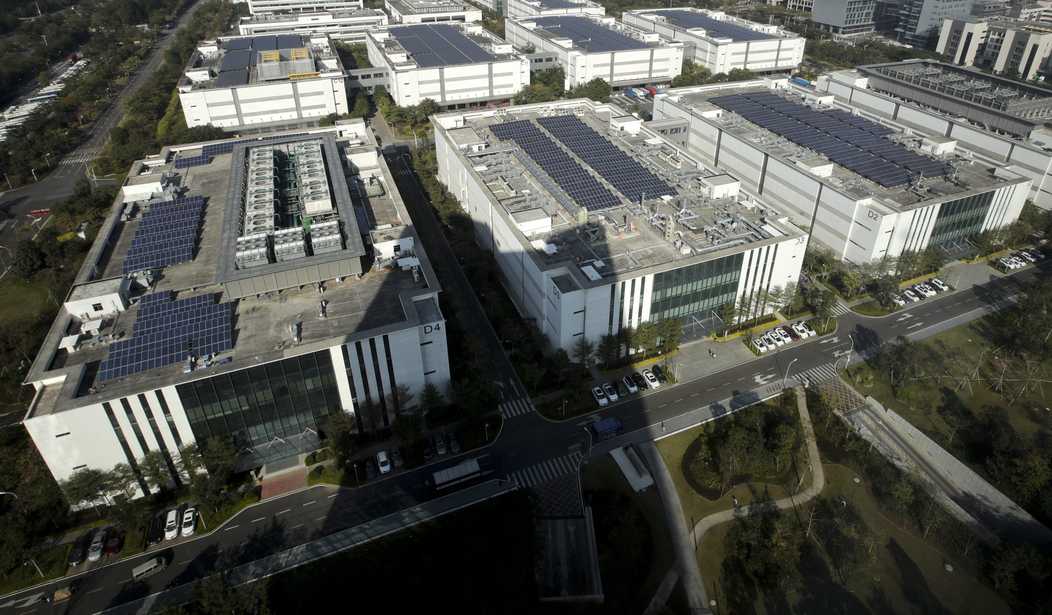The grand battle of the Trade Avengers in Washington really isn’t that important in the grand scheme of things. What matters is the implosion of America’s technological predominance, exemplified by the Trump administration’s strategic humiliation over Fifth Generation (5G) mobile broadband.
In 1258 the Mongols appeared before the gates of Baghdad, the capital of the Abbasid Dynasty. Caliph Al-Musta’sim assumed that the capital’s 12-foot-thick walls would protect the city against lightly-armed Mongol horsemen, but the Mongols brought with them a thousand Chinese siege engineers. The Chinese mercenaries breached the walls within three weeks and the Mongols killed most of the city’s million residents.
FBI Director Christopher Wray, who last week claimed that China is “stealing its way up the economic ladder,” is the 21st-century counterpart of Al-Musta’sim, the feckless caliph of Baghdad. Huawei Technologies, the spearhead of China’s trillion-dollar Belt and Road Initiative (BRI), isn’t a Chinese company, but an imperial juggernaut that crushes its competition and employs their intellectual resources. By 2013 it employed 40,000 foreigners–mostly in R&D– out of a workforce of 150,000. I think it foolish to think that the Chinese can’t innovate, but it doesn’t matter whether they can or not, any more than the siege skills of Mongol horsemen mattered in 1258.
A minor but telling example of Huawei’s imperial reach is the announcement this month that Huawei will build a 400-person chip design facility in Cambridge. It will compete with ARM Holdings, the chip design firm sold in 2016 to Japan’s Softbank. Softbank is a major shareholder in China’s e-commerce giant Alibaba, another spearhead of BRI. The combination of mobile broadband and e-commerce allows China to “Sino-form” economies of the Global South, turning them into Chinese dependencies, as I reported in a March 19, 2019 feature for Tablet Magazine.
Directly or indirectly, China has Britain’s chip design capacity comfortably under its wings. It should be no surprise that Prime Minister Theresa May rejected American demands to keep Huawei out of the rollout of Britain’s 5G networks. “Et tu, Brit?,” one wants to ask: If America’s closest ally ignores our urgent pleas to keep the Chinese telecom giant out of its communication networks, where do we really stand in the world? The Germans did same, and so did the Eastern Europeans. Huawei built out Eastern Europe’s telecom infrastructure during the past decade, and it would be prohibitively expensive to replace it.
The fact is that Huawei’s equipment is years a head of its competition’s. It spends $20 billion a year on R&D, double the combined spend of its largest competitors Ericsson and Nokia. A dirty little secret is that Ericsson and Nokia make most of their hardware in China, so that if the Chinese wanted to implant “back door” spy chips, they could do as easily for the Scandinavians as for Huawei.
Huawei has created a snowball effect: The world’s talent is lining up to work with the Chinese giant directly or indirectly, because it is the dominant player. The more talent it acquires, the more dominant it becomes. It’s the Borg of the global tech business. We will assimilate you, Huawei says. Resistance is futile. The British, Germans, Poles, and Italians have come out with their hands up, and the Japanese are thinking about it.
5G isn’t about downloading movies quickly–it’s the disruptive, game-changing technology that will allow robots to exchange vast amounts of data nearly instantaneously in the factories of the future, and allow armies to deploy swarms of thousands of drones operating together using artificial intelligence. And Huawei is the 800-pound gorilla in the world of 5G.










Join the conversation as a VIP Member